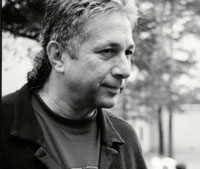|
Dr.Grossberg has written extensively in cultural studies, on popular music and youth culture, the philosophy/theory of culture and communication, and postmodernism. His books include: It』s a Sin: Essays on Postmodernism, Politics and Culture (1988); We Gotta Get Out Of This Place: Popular Conservatism and Postmodern Culture (1992); Dancing in Spite of Myself: Essays in Popular Culture (1997); Bringing It All Back Home: Essays in Cultural Studies (1997); and MediaMaking (with Ellen Wartella and D. Charles Whitney, 1998). He has co-edited nine books, including Marxism and the Interpretation of Culture (1988), Cultural Studies (1991), Sound and Vision (1993), The Audience and its Landscapes (1996) and Without Guarantees: In Honor of Stuart Hall (2000). He has published over one hundred articles and essays, and his work has been translated into ten languages.
His next publications will be: Kids caught in the crossfire; America at war with itself; and New Keywords (with Tony Bennett and Meaghan Morris). Future projects include an introduction to cultural studies, and a work on the philosophical foundations of alternative modernities and perhaps, more on US political culture (especially conservatism). He does not expect to do lots more work on popular culture or popular music--somehow, popular politics (rather than the politics of the popular) seem to be more urgent!
|
| Teaching Cultural Studies in the US: the Long March for 30 years
I have been struggling with the problem of teaching cultural studies now for almost thirty-five years and I must admit, I have never found "the" right way. Cultural studies is not comprised of a finite body of theory and critical methods, but by a set of geo-historically varied examples of its project and a vast literature providing resources for its possible articulation in response to some particular problematic. In other words, the fact that cultural studies is a radically contextual practice poses unique pedagogical problems. In my presentation, I want to talk about some of the ways I have tried to teach contextuality contextually: from studying popular music and everyday life, to a cultural history of cultural studies, to a political history of the future. |

